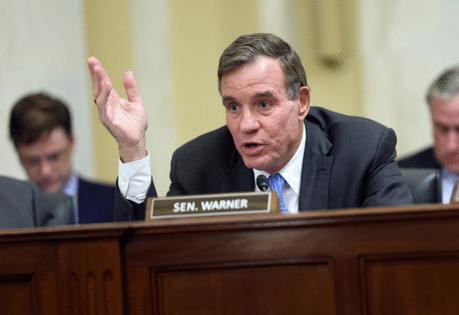AI risks leaving 25% of new college grads jobless, senator says
Published in Business News
Democratic Sen. Mark Warner predicted rapidly advancing artificial intelligence threatens to drive up the unemployment rate of recent college graduates to as much as 25% within the next two to three years.
Warner warned the economic frustration of so many jobless young workers and families that have footed the cost of higher education will fuel a “level of social disruption that’s unprecedented.”
“I think this could be, by 2028, one of the most important issues,” Warner, a former telecom executive and a leading voice in the Senate on technology issues, told Bloomberg reporters and editors in a Monday interview. “We’ll have to meet that moment.”
The unemployment rate among 20- to 24-year-olds with a college degree hit 9.3% in August, the latest month for which data is available, according to the U.S. Bureau of Labor Statistics. That’s up from 7.4% two years earlier.
The Virginia senator said he is working on a plan to address the turmoil with a major job retraining program and that large AI companies whose products are causing the economic dislocation should cover “70 to 80%” of the costs.
“Tech bros, you help us figure out what that retraining ought to look like, but do it for a five-year period,” Warner said.
Congress has held several hearings on AI’s potential impact on the workforce and floated proposals related to AI training and development, but has failed to pass any significant legislation. Labor unions have repeatedly called on lawmakers to enact some rules of the road that would ensure workers can adapt to the transforming technological landscape and their rights are protected as employers embrace AI.
Warner and Sen. Josh Hawley, a Missouri Republican, earlier this month introduced a bill requiring companies and federal agencies to submit quarterly reports about how jobs have been impacted by the rise of AI.
The Virginia Democrat said he doubted Congress would pass any significant AI safety legislation despite a recent focus on the issue.
Earlier this year, the Senate voted to reject an effort to bar states from enforcing laws to protect users from AI-related harms. After the moratorium failed, some senators suggested Congress should take the lead on writing sweeping legislation to rein in the technology.
“In terms of an actual, real bill, I don’t see much” of a chance, Warner said. “I don’t think there’s anything real going on at this point.”
Warner, whose state is home to the highest concentration of data centers in the world, said he predicts the spiking cost of electricity due to data center power usage will be an issue in the upcoming midterm elections. But he suggested a solution: hyperscalers, like Amazon.com Inc. and Alphabet Inc., will have to “kick in” and pay for their own power usage. That would prevent residential electricity users from paying extra as data centers proliferate, Warner said.
“You’re going to have to take the data center power cost off the traditional consumer,” Warner said.
Warner, who’s up for reelection in 2026, said he’s aiming to bring AI to the campaign trail since it’s an issue that affects “all of us, you know, our kids.”
“I’m going to try to do a lot,” he said.
©2025 Bloomberg L.P. Visit bloomberg.com. Distributed by Tribune Content Agency, LLC.












Comments